I am a herbalist
About Medical Herbalist Alan N Hopking MA MNIMH [MRCHM*]

Alan Hopking MA on graduation day
Alan Neville Hopking MA (b. 1950) after four years training graduated from the School of Herbal Medicine (England, UK) as a herbal practitioner in 1981 and in the following Spring at the April NIMH Annual Conference (1982) he took the Oath of the Institute and was accepted into membership with the oldest professional body of practising herbalists in the world, the National Institute of Medical Herbalists (UK). He now carries the letters of his qualification and membership MNIMH. This guarantees that he is fully insured and adheres to a strict professional Code of Ethics. These letters are a guarantee that patients place themselves in safe, trained and caring hands.
Then in 1991 after two years of post-graduate training, Alan qualified from the London School of Chinese Herbal Medicine, and was elected to Membership of the Register of Chinese Herbal Medicine (UK), with the letters MRCHM in 1993. His grandfather George Moynihan, who lived in China for years with his wife (and where their first son was born, my Uncle David; my mother, Joy, however, was born in London), was the first European to send Chinese Liquorice Root to USA! My father and his family roots are native to Norfolk, England.
Animal substances used in Chinese Herbal Medicine – the reason Alan Hopking has opted out of membership
*In 2010, due to the refusal of Chinese Herbal Medicine to renounce the use of animal products (which includes rhino horn, tiger bones, sea horses, bear gall bladders, and many other animals and threatened species) Alan Hopking renounced his membership and association with an organisation that refuses to put pressure on authorities and suppliers to cease selling such animal products. It must be emphasised that since qualifying as a Chinese Herbal Practitioner Alan Hopking never once used any animal part or insect part in his prescriptions: there is absolutely no evidence that these products have any medicinal action at all, and that it has developed from the ancient ‘Doctrine of Signatures’ which has no basis of truth or scientific evidence of therapeutic action. It is an unnecessary and barbaric, inhumane and baseless practice and should immediately be declared illegal and criminal and be policed by the Chinese authorities so that the whole disgraceful (ignorant and cruel) practice be stopped. With the correct will and determination, this entire trade could be abandoned within one year. Instead the authorities, not only in China, take a blind-eye view of this barbaric tradition. It is totally unacceptable to me and any respectful environmentally-friendly nature lover.
—————
Dear Alan, I am 68 years of age and a vegetarian. I was so pleased to read your statement about not using animal products in your medicines as this was a fear of mine.
Rosalind
—————
Chinese animal medicinals
Some animal parts used as medicinals can be considered strange such as cows’ gallstones.[71] Other examples of animal parts include horn of the antelope or buffalo, deer antlers, testicles and penis bone of the dog, and snake bile.[72] Some can include the parts of endangered species, including tiger bones[73] and rhinoceros horn.[74] The black market in rhinoceros horn reduced the world’s rhino population by more than 90 percent over the past 40 years.[75] Concerns have also arisen over the use of turtle plastron,[76] seahorses,[77] and the gill plates of mobula and manta rays.[78] Since Traditional Chinese Medicine (TCM) recognizes bear bile as a medicinal, more than 12,000 asiatic black bears are held in “bear farms”.[79] The bile is extracted through a permanent hole in the abdomen leading to the gall bladder, which can cause severe pain.[79] This can lead to bears trying to kill themselves.[79] As of 2012, approximately 10,000 bears are farmed in China for their bile.[80] This unethical practice has spurred public outcry across the country.[80] The bile is collected from live bears via a surgical procedure.[80] A number of animal species used in traditional Chinese medicine are now raised on farms in large quantities.[81] Australian scientists have developed methods to identify medicines containing DNA traces of endangered species.[82] Some TCM textbooks have recommended preparations containing animal tissues when there has been little research to justify the claimed clinical efficacy of many TCM animal products.[72]
References: Hesketh T, Zhu WX (1997). “Health in China. Traditional Chinese medicine: one country, two systems”. BMJ 315 (7100): 115–7. doi:10.1136/bmj.315.7100.115. PMC 2127090.PMID 9240055.Still, J. (2003). “Use of animal products in traditional Chinese medicine: Environmental impact and health hazards”. Complementary therapies in medicine 11 (2): 118–122.doi:10.1016/S0965-2299(03)00055-4. PMID 12801499. editNigel Wiseman & Ye Feng (1998). A Practical Dictionary of Chinese Medicine (2 ed.). Paradigm Publications. p. 904.Facts about traditional Chinese medicine (TCM): rhinoceros horn, Encyclopædia Britannica, Facts about traditional Chinese medicine (TCM): rhinoceros horn, as discussed in rhinoceros (mammal): – Britannica Online Encyclopedia”Rhino horn: All myth, no medicine”, National Geographic, Rhishja LarsonChen1, Tien-Hsi; Chang2, Hsien-Cheh; Lue, Kuang-Yang (2009). “Unregulated Trade in Turtle Shells for Chinese Traditional Medicine in East and Southeast Asia: The Case of Taiwan”.Chelonian Conservation and Biology 8 (1): 11–18. doi:10.2744/CCB-0747.1″NOVA Online | Kingdom of the Seahorse | Amanda Vincent”. Pbs.org. Retrieved 2009-12-07.Chou, Chan Tao (2 April 2013). “Diminishing ray of hope”. 101 East (Al Jazeera English). Retrieved 6 May 2013.”The ultimate sacrifice: Mother bear kills her cub and then herself to save her from a life of torture”. Daily Mail (London). 12 August 2011.Sheng, X.; Zhang, H.; Weng, Q. (2012). “Traditional Chinese medicine: China’s bear farms prompt public outcry”. Nature 484 (7395): 455. doi:10.1038/484455c.PMID 22538598. edit”Update on Turtle Farming in China”: an extract from a report of CITES animals committee meeting in Geneva (August 2003). Appears as Appendix 4 in: Endangered Species Issues Affecting Turtles And Tortoises Used In Chinese Medicine DNA may weed out toxic Chinese medicine – By Carolyn Herbert – Australian Broadcasting Corporation – Retrieved 14 April 2012. Source: Wikipedia
——————————————————————–
In 1985 after two years training Alan was elected as Member of the INEH. And following 20 years of practice and international teaching of health and healing, he was awarded a Fellowship of the organisation in 2005, FINEH. Alan is an author of four books about health and healing; the most recent book was published in USA in 2005. To view his latest book, click here. In 2013 Alan retired from teaching.
Alan has been in continuous practice as a professional herbal practitioner since 1981. He had multi-practice clinics in London, Southampton, Bournemouth, Poole and Weymouth. He has been at his own dedicated and busy practice in Christchurch since 1993. In 2008 he moved to his own dedicated centre of herbal medicine in Lymington, next to the Lymington Hospital. In 2011 Alan required larger premises in the area and moved to New Milton, close to the Arndale Medical Centre and the British Rail Station. It was in New Milton that Godshaer Clinic was given a new name: Herbactive Clinic. He has patients from as far away as Peru, India, USA and Australia, but of course most of his patients are in Great Britain and Europe.
Alan is married and has two sons.
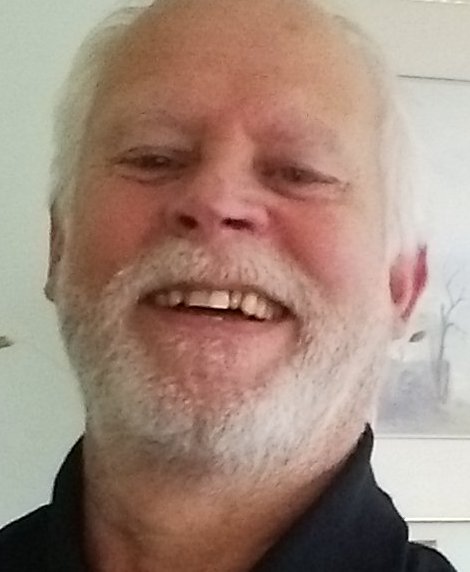
Alan Hopking in 2016
Over 35 Years as a Herbal Practitioner
More and more people are turning to herbal medicine as the first alternative to mainstream medicine with its pharmaceutical products and frequent side effects. After over 35 years of clinical experience I know that patients want safe effective treatment. And when treatment is wanted no-one wants to wait for an appointment. A patient needs to be patient when being treated. But treatment needs to be started as soon as possible to begin the healing process. This is why we at Herbactive regard seeing new patients as soon as possible and the delivery of your medicine a priority. We can guarantee next day delivery.
To receive our botanical medicines, made without compromise at the dedicated Clinic and Dispensary, Herbactive Botanical Centre, using the most effective herbs for treating specific health conditions, consult me concerning your needs, symptoms, any medication you’re on, and any other relevant medical data. Simply email me to discuss your needs. I normally reply the same day.
If you have a loved one who needs help, consider herbal medicine; it could make a vital difference to the regaining of their health.
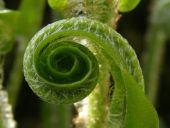
A statement by Alan Hopking MA MNIMH FINEH
“I have always been interested in health and healing. When I was a boy I couldn’t understand why people got ill and died. I believed there was within us the capacity for indefinite health and life. Seeing disease and suffering, pain and death for myself made me aspire to the ultimate health giving life source: Plants. I saw plants as embodying a life we had lost. Trees and herbs with long life we call “perennials”. I saw all plants as having a beauty and purity which we only expressed in our youth. That flowers and their fragrances whether of roses or asafoetida manifested a uniqueness that still radiated strength and aliveness, made me wonder. My love of plants arises from a profound respect for them. They have been subject to the same conditions of trial and test over the millions of years of evolution as humans. Yet they retain their high standards, maintained their humility and sanctity, and easily excel both ourselves and the animal kingdom in variety, abundance, adaptability and beauty. Over the hundreds of thousands of years we have come to understand the outstanding qualities of plants, not just as food but also as medicines.
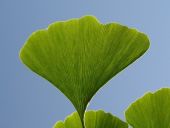
The following poem speaks a lot as to how I feel. It expresses all that I say on this page, and with greater character, beauty and gravity. I love poetry involving the natural world. This poem is special to me and to nature lovers. Inversnaid is in the north of Britain. It’s about nature that may be lost (bereft, Despair), there’s a winding rushing stream (burn, brook), twisting through river banks (braes), and falling into a deep pool (pitchblack), making froth; around the pool are herbs (heathpacks) and ferns (fern [viz my first health clinic named after the harts tongue fern, godshaer], and trees (beadbonny ash), and the need for the sustainability of the wilds of nature to maintain us and remain here (what would the world be, [Despair]), and keep the beauty of wild herbs and plants (weeds) and the wilderness.
Inversnaid
by Gerard Manley Hopkins (1844–89). Written 1918
This darksome burn, horseback brown,
His rollrock highroad roaring down,
In coop and in comb the fleece of his foam
Flutes and low to the lake falls home.
A windpuff-bonnet of fáwn-fróth
Turns and twindles over the broth
Of a pool so pitchblack, féll-frówning,
It rounds and rounds Despair to drowning.
Degged with dew, dappled with dew
Are the groins of the braes that the brook treads through,
Wiry heathpacks, flitches of fern,
And the beadbonny ash that sits over the burn.
What would the world be, once bereft
Of wet and of wildness? Let them be left,
O let them be left, wildness and wet;
Long live the weeds and the wilderness yet.
———————–
The disciple goes to the master
“The disciple goes to the master, the patient to the doctor, the student to the teacher – the lesser to the greater. This is the truth behind the supreme distinction of plants over man and beast. We are totally dependent on them; but they not on us. We have bowed down to them for as long as we have co-existed. Through this obeisance our medical forefathers gained a knowledge as to which plants were to be used for different human illnesses. This obsession continues today as we tirelessly search for the plant saviour to end the scourge of the catalogue of humiliating horrors which afflict us. New drugs from trees, vines and herbs from the remotest parts of the uncivilised world keep cropping up. New drugs from bushes on our doorstep. We can stand agog at the findings of science. But we should not be surprised. We are the little children who need to learn from our Great Mother how to live and thrive and sing and spread joy. But in our arrogance we think we know better. For these reasons I decided to become a herbal practitioner.
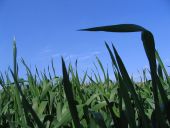
I love humanity
“I love humanity. We have such potential, such ambition, such hope, faith and purpose. We are so young; so arrogantly ‘stupid’! Being the “first-born” with mind we have hardly recognised that we are part of the indigenous species on the planet. Until we do, all our potential and purpose is doomed. Until we do, we will depend on plants and botanicals. When we do, this medical dependency will cease. These are serious thoughts, deep thoughts, perhaps.
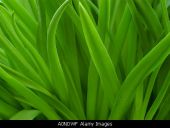
I love plants
“I cut the leaves of plants. I dig up their roots. I split off barks. I collect flowers, berries, seeds, nuts and resin. I squeeze stems and rhizomes for juice. I steep, boil, macerate and distil the plants I gather. They let me. They want me to do this. They call me to themselves. From them I make extracts, tinctures, waters, tonics, lotions, douches, liniments, poultices, snuffs, creams, ointments, oils, etc. for the healing of disease. ‘Thank you plant beings. Thank you Green Man.’ With all these I only use pure spring water. I draw this myself from the source, as it gushes from the earth womb. I believe in natura naturans, the universal being of nature, as the source, with infinite potentiality, forever creative, begetting itself, transforming, adapting to the interacting conditions of itself. I also believe in natura naturata, that nature is the infinity of worlds and objects and events into which the whole divides itself and in which nature displays the potentialities latent within it. We are part of nature and totally dependant on it for our health and happiness.
“People have consulted me with virtually every possible complaint in the book. Each is prescribed the appropriate plant or combination of plants, in the appropriate form for their use. If they follow the advice given (in three levels of application according to the severity of the resistance) they usually get better.
“For more about the purpose of disease see my book on health and healing (published 2005); for finding out which plants for what illness, the clinic at which I am based, and much more see the site map.
“I studied for four years at the full-time School of Herbal Medicine, and then two years at the postgaduate School of Chinese Herbal Medicine in London. I have taught herbalism and healing in many countries. I gained a Masters degree in Philosophy at the Open University.
“Herbalism, herbal medicine, botanical therapy, phytotherapy – to it I am dedicated.
Natura naturans.
Natura naturata. “
Alan and his son Kingsley
Giovani Maciocia, a tutor and friend, recently made this very insightful comparison between acupuncturists and herbalists to which I concur:
“Essentially the qualities of the acupuncturist and the herbalist are different… herbal doctors are always very quiet, meditative, reflective and think very deeply, whereas acupuncturists are more extrovert… When you diagnose to prescribe herbs you are all in your mind, thinking about the herbs.” (Acupuncture Review, 2001)
Alan Hopking MA MNIMH says, regarding his work as a medical herbalist and his web-site Herbactive.co.uk, ‘Following UK and EU law, I assure every patient and prospective patient that no medical claims are made or intended regarding my work as a herbal practitioner. Further, no claims or guarantees are made or intended concerning any of the medicinal herbs I prescribe for any medical condition treated. However, following the consultation process, I pledge I shall do all I can, drawing upon my knowledge of herbal medicine and natural treatment, to help you regain your health.’
The Big Squeeze
The medical herbalist does not have the right to advertise using any form of advertising method or public display of any herbal product for sale he or she makes unless such a product has a registered license to prove that in clinical use and under double blind conditions such a herb or herbal combination can do exactly what it is claimed that it can do in the human organism.
Now, if a snooker ball is hit against another there is a predictable outcome, but if a snooker ball is hit into a pack of balls the predictability of the directions and interactions of the balls is very difficult; and if we had say ten white snooker balls hit simultaneously into a pack of fifty red balls the predictability of the directions and interactions of the balls is virtually impossible.
In prescriptions medical herbalists don’t use one single herb let alone one single constituent (as in pharmaceutical drugs); what’s more, each human who is displaying symptoms of illness has a unique set of symptoms different from any other patient and so the same clinical outcome can never be predicted; herbs are drugs but have a much wider, safer use than industrialized chemical drugs, this is due to herbs being organic, like potatoes, eggs and beans, with a wide range of organic constituents that uniquely fit together and which the body can recognize and respond to, to overcome illness. Not so with industrialized drugs: these are concentrated chemical compounds created to cause maximum reaction for quick results. Hence the sad sufferance of side effects in all patients, and iatrogenesis.
… nor may a medical herbalist state in any form of advertising method or public display that any plant has any medicinal value for human or animal use (medical herbalists are not legally permitted to treat animals with medicinal herbs; this may only be done by medical herbalists who are trained as veterinary surgeons).
… the medical herbalist may not state that with the use of medicinal herbs he or she can in any way ease the suffering of any patient’s illness.
… a medical herbalist may not prescribe a herbal medicine consisting of one or more medicinal herbs without having a face to face consultation with the patient;
a video call (for example on a 4G mobile phone or on Skype or Viber or WhatsApp) between a medical herbalist and a patient is not considered a consultation and a herbal medicine may not be prescribed;
a telephone call between a medical herbalist and a patient is not constituted a consultation and a herbal medicine may not be prescribed;
an email conversation between a medical herbalist and a patient is not constituted a consultation and a herbal medicine may not be prescribed;
letters exchanged between a patient and a medical herbalist is not constituted a consultation and a herbal medicine may not be prescribed;
and since we are not allowed to advertise ourselves or the herbs we use or any combination of herbs as products as having any medicinal action on the human body… … …
Alan Hopking
Iatrogenesis
The medical establishment has become a major threat to health. The disabling impact of professional control over medicine has reached the proportions of an epidemic. Iatrogenesis, the name for this new epidemic, comes from iatros, the Greek word for ‘physician’, and ‘genesis’, meaning ‘origin’… Until recently medicine attempted to enhance what occurs in nature. It fostered the tendency of wounds to heal… Now… therapies induce the organism to interact with molecules or with machines in ways for which there is no precedent in evolution… The pioneers of yesterday’s so-called breakthroughs warn their patients against the dangers of the miracle cures they have only just invented… [And] the medical monopoly over health care has expanded without checks and has encroached on our liberty with regard to our own bodies…
Limits to Medicine by Ivan Illych
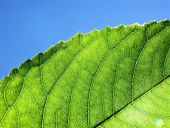
Go to the site map
Go to our online store
To make a random free-will donation gift to Herbactive Herbal Clinic
